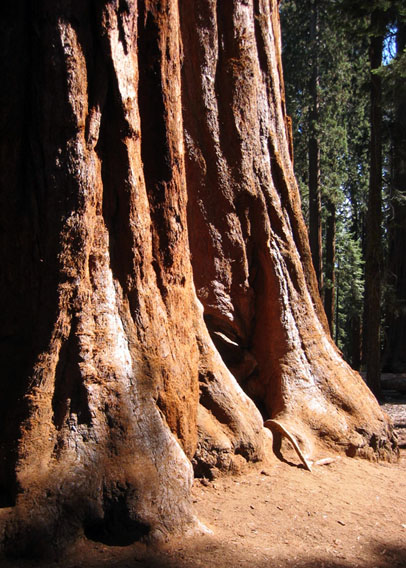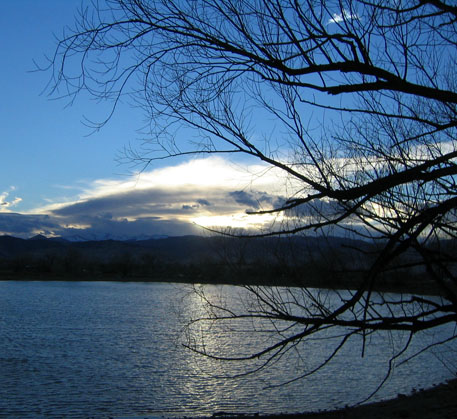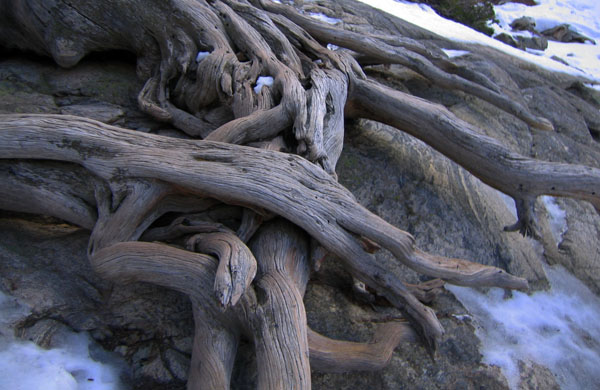About a year ago I found myself drawn to a new phase of nature relationship. It became clear that I was being called to a spiritual path that is often called shamanic, though for reasons I’ll get to, I find this word troublesome. But anyway. This spiritual path, I learned, had a claim on me that ran even deeper than that of writing.
 That I was so deep on a spiritual path was news to me. In retrospect, the fact that I was so surprised makes me laugh. I mean, really—someone who wrote a book about talking with trees and animals and land, and didn’t call her path a spiritual or shamanic one? When I “came out” to friends about this new spiritual direction, they listened unsurprised and then often chuckled at me. “You mean you didn’t know?” they asked.
That I was so deep on a spiritual path was news to me. In retrospect, the fact that I was so surprised makes me laugh. I mean, really—someone who wrote a book about talking with trees and animals and land, and didn’t call her path a spiritual or shamanic one? When I “came out” to friends about this new spiritual direction, they listened unsurprised and then often chuckled at me. “You mean you didn’t know?” they asked.
No, I didn’t. The universe is a trickster, it is said, and in keeping with the cosmic joke I was the last to know.
And once I did hear the news, I was none too pleased. This too makes me chuckle—now. At the time I was in no mood to appreciate either the joke or a new identity. Writing the book had taken me through a marvelous integrating process—pulling together pieces of my story and a shared cultural story—and I was looking forward to wearing the writer identity for the rest of my life. I was not at all thrilled to hear that writing, for me, might not be a role to reside in but rather a useful skill—something I do not for its own sake but for the sake of something else. Tim will tell you I went kicking and screaming on this one.
And then there was that word: shaman. It comes from the Tungus-speaking people of Siberia and means a person who is called by the community to talk with more-than-human beings on behalf of the community. Many indigenous people believe that the word shaman—and the traditional knowledge it represents—should stay with indigenous people. In recent decades, as white people seek nature-based forms of spirituality, many Indians have denounced the spiritual appropriation that so often takes place—white people stealing indigenous traditions or at least acting like they own them. It’s colonialism in yet another terrible form. Shamanism is a frequent focus of concern; for examples, see here and here. Since I moved to Santa Fe, an Indian friend warned me that I might not want to use the word shaman if I want to get along peaceably with the Native people among whom I now live. “This isn’t Boulder,” my friend said. “Things are different here.”
But my Indigenous friends are not the only ones disliking the word. From the start of this path I found that what I was learning seemed quite different from the way shamanism is usually taught among white people. Often students are introduced to the path through its techniques—journeying, finding animal-spirit Helpers, drumming or rattling or dancing to induce trance, and so forth. By contrast, on the path I was learning, no drums or rattles, feathers or sage were called for. In fact, the only tools I use so far are a recorder—the built-in recorder on my smartphone—and earbuds. That’s because the focus of the path is conversation. In other words, relationship.
 It works like this. I go sit by myself, turn on the recorder, and begin listening. I listen for the still small voice of a more-than-human Helper. One Helper in particular, a wise and kind animal, is my primary Helper. Why the sacred shows up in this particular form I cannot say, except this much I have learned: my animal Helper often has a jolly sense of humor and seems to be imparting some of it to me. If a Helper’s job is to provide the grace a particular person needs, then apparently I have a lot to learn about enjoying life and learning to chuckle at human foibles. Especially my own.
It works like this. I go sit by myself, turn on the recorder, and begin listening. I listen for the still small voice of a more-than-human Helper. One Helper in particular, a wise and kind animal, is my primary Helper. Why the sacred shows up in this particular form I cannot say, except this much I have learned: my animal Helper often has a jolly sense of humor and seems to be imparting some of it to me. If a Helper’s job is to provide the grace a particular person needs, then apparently I have a lot to learn about enjoying life and learning to chuckle at human foibles. Especially my own.
And here’s the thing: the relationship with my Helper is making a difference. Tim will tell you I have gotten happier over the past year, and an intimate partner knows the truth. He says I am less prone to impatience and irritation, more ready to laugh. My personality is changing. Or rather, is being changed.
Because that is what happens in a relationship. In drawing close to another, we open to something new. And that is the piece so often missing from the teaching of shamanism among white folks—how it’s not about visiting other worlds or seeing visions or doing wondrous things, though all of these things can and do happen. It’s about cultivating an awareness of the divine. Listening for the still small voice. Learning to dwell in the daily presence of Spirit.
And being changed in the process.
It’s a path of devotion, of direct communication, with echoes of Rumi yearning for his Shams, of St. John of the Cross stealing away to rendezvous with the Beloved, of the psalmist following a Shepherd. Here, by the way, is a musical setting of the Twenty-third Psalm (by Bobby McFerrin) that I have loved for decades:
Once the conversations with the Helper are recorded, the work has only begun. Then the job is to listen to the conversations and transcribe them. And in the days to come I do it all again. Later I come back to the transcriptions and reread them, always open to seeing something new—and finding it. They usually speak in a new way to the situation I am facing during that time too.
 I’ve been through rigorous academic programs, and this one matches them. Except in this one my textbook is not the voices of other human beings but the voice of a more-than-human ally. The curriculum is relationship.
I’ve been through rigorous academic programs, and this one matches them. Except in this one my textbook is not the voices of other human beings but the voice of a more-than-human ally. The curriculum is relationship.
I do have a human mentor in this process, a woman who was taught not by other human beings but by listening directly to the Helpers. She makes it clear that she is not my teacher. “You and I are in a classroom,” she says. “You are sitting at one desk, and I am sitting at another. But the Helper is at the head of the class.” The source is within each of us, just as it is within all parts of nature. It is each person’s privilege to cultivate their own direct awareness of it.
What do I call this path I’m on? For now I just say, I am one who listens. A daily walk with Spirit—that is my practice.
_________
I am learning how to pass on the supportive wisdom of the Helper to others. For more information, see my Come Home to Nature, Come Home to Source page.
Your new realization about yourself is an inspiration to all of us who seek to get deeper into the world. I wish you the best of luck on this journey and hope you will keep us posted on the progress.
Thank you, Kathy! This path is scary to write about for any number of reasons from personal to political, so thanks for your note of support. Happy 2014!